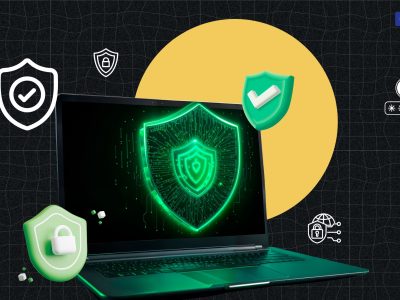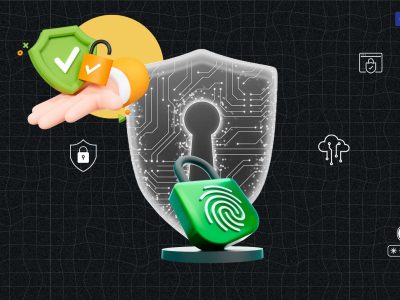What is Vishing in Cyber Security: Key Awareness And Prevention Mechanism for You

- Over 59.4 million people in the U.S. fell victim to the vishing attacks in the year 2021. This is quite an alarming number, which reflects the increasing threat of phishing attacks.
- Almost 7 in 10 respondents reported having encountered vishing attacks in 2023. This represents a slight decrease from 71% the year before.
- Youngsters, particularly those aged 18-44, are more susceptible to vishing attacks. Out of this populace, Men are more vulnerable to these attacks, with 59.4% of vishing victims made in the year 2021.
So, what is vishing in cyber security?
Vishing or voice phishing poses quite a significant threat to our security. In the following article, we break down how the vishing technique works. We will also touch on the areas that help clarify the concept. So, without any further ado, let’s dive deeper into the topic.
What is Vishing in Cyber Security

What is a vishing attack in cyber security? You will find numerous questions floating on the internet sky.
Vishing or voice fishing is a kind of cyber-attack involving the authorized use of fraudulent calls or voice messages that entice the victim to ring out personal information that has immense value.
The fraudulent elements may call you as a representative of a Bank. Thereafter, in an emergency, they may ask for technical support.
They may even approach in the form of a government agency to create urgency. These fraudsters may ask you to provide details like bank account credentials, social security numbers, or passwords, prompting you to form a false sense of security.
A 2021 study shows that around 59.4 million Americans fell victim to voice phishing. These are people who have lost their savings and identity.
They have consequently felt the emotional cost of such violations. Hence, under the circumstances, the discussion on cyber threats is quite pertinent.
How Does Vishing Attack Work?
There are cyber security businesses that help both organizations and remote workers to prevent themselves from fraud.
Remote or independent individuals must not only restrain themselves from knowing what is vishing in cyber security but also move further into knowing the mechanism that comes into play with this attack.
Social Engineering
The fraudsters use social engineering to convince the victims to extract personal data. They will use their tricks to become recognizable or accountable companies like tax authorities, police, government, and even banks.
They use Fake Caller ID profiles to Feign Legitimate
The fraudulent players, typically the vishing scammer, create fake caller ID profiles that the phone number seems legitimate. Moreover, they form a local area code to earn people’s trust and confidence.
They pose as the most trusted organization to gain sensitive information
The Visher scammer usually poses as a trusted source.
They talk, act, and deal like someone from the bank, HMRC service providers, or credit card company representatives.
Their objective is to create panic out of nothing and ask you for information. You will simply fail to notice when you have fallen victim to a vishing attack.
Hunt Personal Information
Once cyber scammers access some susceptible information, they will use it to commit financial theft, such as unauthorized purchases or withdrawals from the individual’s bank account.
Just as professionals, they carry out cyber security testing to detect vulnerabilities, you need to take measures so that they can help you get a good understanding of the threats.
Apart from the process, the vicious actors use different techniques to dent into the network. They include
- Dumpster Diving.
- Ai Based Vishing.
- VoIP.
- Caller ID Spoofing.
- Caller ID Spoofing.
- Client Call.
- Voicemail Scams.
Types of Vishing Attacks

As an aware individual, you must never ever limit your knowledge and awareness to what is vishing in cyber security.
You must definitely know about the different types of vishing attacks, at least the most common types.
Bank Scams
The scammer usually pretends to be a bank representative. They will ring you and say there is some problem with your account or cards.
They would aim to steal information, log-in passwords, card numbers, and any other vital information.
Computer Scams
A call may approach you saying that your computer is virtual, and they have a service to fix the problem, which is free of cost.
Their aim would be to install spyware on your computer so that they can extract vital information or any personal details from you.
Compensation Scams
These callers make an offer to you in the form of compensation for recent events like a car accident. Beware of these attacks from the fraudsters. The best move is not to provide them with any personal information. If you have any questions, make time to contact your insurance company.
Tax Authority Scams
The scammers often send a prerecorded message, informing people (the victims) of a supposed issue with the tax returns. Thereafter they ask for vital information from the victims.
Government Grant Scams
It is also one of the major vishing scams where the imposters grand offer to the victims. They are usually unsolicited. They are designed to steal money and personal information from you. Take note, scammers impersonate your friend by sending you messages regarding government grants.
Prize Scams
The Fraudster claims that you have won prize money. However, it requires you to pay an upfront fee to redeem the amount in full. Moreover, they may force you to provide bank account details and send money via wire transfer. That’s the trick that they use to fool people.
Other than these mentioned above the fraudster uses some other types of scams like charity scams, password reset scams, and utility scams to fool people by extracting personal and sensitive information and even money.
Password Reset Scams
Password reset scam is a type of phishing scam that involves tricking victims by extracting their password.
Malicious elements usually send texts that appear to represent big companies like Microsoft, Apple, and others.
They claim that your account has been locked. They may ask you to click the link to reset your password. It creates a sense of urgency, and as a result, you step your foot into their snare.
Utility Scams
These scams occur when the scammer pretends to be the representative of the utility companies or government agencies. They occur when the scammer pretends to be the representative of utility companies or government agencies.
They usually make false claims about unpaid bills. Their bait also includes presenting irresistible offers, rather too good to be true.
The most common utility scams include disconnected scams, overpayment scams, smashing scams, equipment or repair fee fraud, bogus bills, and others.
Charity Scams
Among the latest visiting scams are charity scams. Scammers use deception to steal money from people who believe they are donating to a legitimate cause.
The scam artists exploit the natural disaster and other natural exigency to play with emotions… on the sympathy of the donor. They take advantage of people’s sympathy and generosity.
Cybercriminals approach victims through emails, SMS text messages, or even advertisements that involve requests for relief efforts. Beware of such requests and avoid such emails.
Vishing Vs Phishing: Know the Difference

Many searches” What is phishing in cyber security?” to find information on vishing. Actually, they seem to mix both types of information.
Are you too one of them?
There is nothing unnatural about typing phishing in an attempt to study vishing in cyber security.
Both the terms are similar in their sound. However, we try to form an understanding of both specifically by drawing a difference.
Vishing attacks target a range of people through voice communication. Phishing, on the other hand, attacks the target with a wide range of people through emails.
To be entrapped by vishing, one has to provide valuable information to the miscreants verbally. However, in the instance of phishing, you will be asked to click on some harmful links.
Vishing is a manual attack because you talk to the victim directly. On the other hand, with phishing, you usually get information over the mobile phone in the form of an SMS.
The voice calls that the victims receive are targeted to one single person at a time. But the phisher sends SMS to multiple people.
Vishing attacks used to be common earlier. However, they are carried out in the present times. But phishing is highly common nowadays.
Can You Prevent Vishing? What do Experts Say?

You may have heard that organizations monitor cyber security to understand threats.
It denotes they are well aware of the patterns of cyber-attacks and, at the same time, the measures. The same one can prevent vishing attacks with the help of awareness training.
Never Provide Personal Data
The vishing attacks are designed to trick people and reveal the most personal information. The attackers can use them to attack fraud.
This is the reason you must never provide data like passwords, financial data, or multifactor authentication over the phone.
Organizations Must Never Accept Payments Via Gift Cards
Visitors often ask for payments the victim owes in the form of prepaid cards and gift cards. There is no legitimate organization that will ever request gift cards as payment. If it takes place, there is a high chance that someone is scamming you.
Remote computer Access: Never Ever Give One
They may ask for remote access to your computer in the name of removing or fixing issues. Hence, you should never grant anyone access to your computer unless they are a verified member of an IT department. These kinds of frauds are becoming common. So, you need to be aware of the issue.
Report Cybersecurity Incident
You may have heard about professionals engaged in cyber security audits to find instances of vulnerability. They take the necessary steps, even smoking the slightest of intentions.
In the same way, you must keep an eye on repeated scamming intentions. If you find any clue, you must report the incident to the cyber threat to the authority’s security staff in your organization.
Mitigating the Additional Attack Vectors
There are different approaches through which you can spot phishing attacks. But it is difficult to do with vishing. Yes, vishing is quite hard to stop as it takes place over the phone.
This is the reason organizations must make a threat model that focuses on the objective of the attackers.
For instance, a vanishing attack targets an organization that may have one of several goals. They include infecting the employee’s computer with malware. It also gains access or control over the device of the user.
Been a vishing Victim? Here’s What You Should Do Next!
If you face such threats, you can use a Web application firewall. It’s indeed an effective approach to tracking victims. A good quality application firewall can prevent attacks with high-end web traffic analysis in your application. It will help you detect unauthorized access.
These mechanisms engage in real-time attack detection and prevention using your application. Thus, it will stop external attacks and injections and bring down the elements of threat and vulnerability.
These systems also prevent logic attacks from all access points, such as mobile applications, websites, and APIs. This is the right approach to gain seamless visibility and control.
These systems also block attack traffic at the edge to ensure security is put in place and the business remains unhindered from performance assets.
You May Like Also:

























